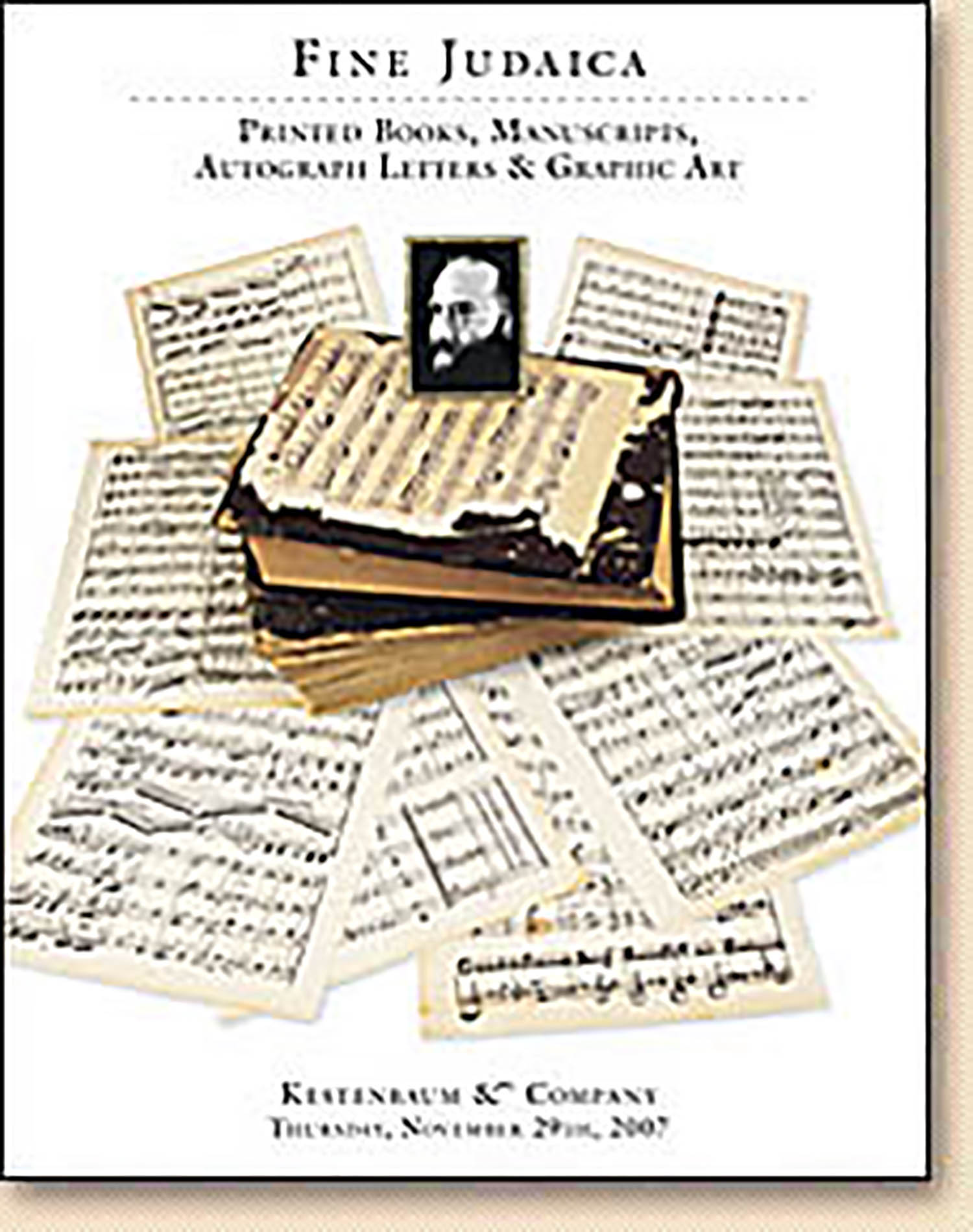Akeidath Yitzchak [philosophical and allegorical sermons on the Pentateuch]

AUCTION 38 |
Thursday, November 29th,
2007 at 1:00
Fine Judaica: Printed Books, Manuscripts, Autograph Letters & Graphic Art
Lot 45
ARAMA, ISAAC
Akeidath Yitzchak [philosophical and allegorical sermons on the Pentateuch]
Salonika: Don Judah Gedaliah, Joseph de Crasto & Eliezer de Arles for Solomon ibn Yakar 1522
Est: $5,000 - $7,000
PRICE REALIZED $13,000
First edition of a fundamental work of Jewish homiletics. Seldom found complete.
The author, affectionately known as the “Ba’al Akeida,” has been consistently quoted and utilized, especially by Polish and Galician preachers, until the present day. Numerous works interpreting Arama’s philosophy have been issued through the centuries, of particular note is Israel Kitover’s Biurei Ha’midoth (1875).
Representative of an anti-Aristotelian trend, directed chiefly against Maimonides and his followers, Arama’s philosophical influence is reflected primarily in the writings of Isaac Abrabanel, a younger contemporary. Arama’s great popularity stems from his stylistic combination of the Aschkenazic didactic and moralizing style with the philosophic tendency popular among Spanish and Provencal Jews. The need for this new approach, Arama explains in his introduction, “is especially urgent in this country (i.e. Aragon) where the Christian preachers, many of whom are well learned, expound the doctrines of their faith as well as the words of the Bible in a philosophic and scholarly manner. The Jews who often listen to their preachings, desire that their rabbis should do likewise.”
The general method of the Akeidath Yitzchak is homiletic, subjects are joined to each other not in a strict scientific manner but more loosely. Midrashic statements as well as Biblical passages are discussed, elucidated and explained. Arama’s discourses deal with a wide range of topics including the definition of the Soul; the symbolic meaning of Paradise; the conception of Prophecy; Free-will, etc.
Immediately upon appearance, Arama's writings enjoyed wide esteem - indeed to such an extent that Isaac Abrabanel, appropriated concepts occasionally attributing them to himself. Arama himself, however, borrowed ideas from R. Abraham Bibago’s Derech Emunah without attribution, as J. S. Del-Medigo points out in his Matzreph La’chochmah
